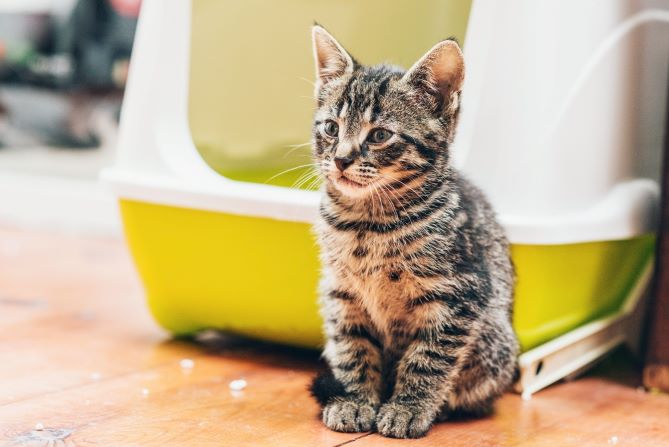Feline Urinary Care
Keeping Your Cats' Bladder Flowing
Feline house soiling can be very confusing and frustrating for pet parents. At the CSC we take feline house soiling seriously. Often there is an underlying medical condition triggering house soiling behavior but, in some cases, there may be an underlying stressor at home, or simply a misunderstanding that the behavior the cat is exhibiting is a normal cat behavior and simple adjustments can be made to help allow the cat to exhibit the normal behavior in a more desirable location.
Professional Cat Urinary Care
When a patient presents for a house soiling concern, a full physical examination will be performed, in addition to laboratory tests and often imaging (ultrasound or xrays). Our goal is to rule out an underlying medical condition first. Some examples of medical conditions include crystalluria (urinary crystals), feline idiopathic cystitis (FIC), urinary tract calculi (stones), urinary obstructions, constipation, kidney disease, diabetes and many others. Following the exclusion of underlying disease, a behavior consultation will be performed. This includes a deep dive into the cat’s life at home by having the pet parent complete an in-depth questionnaire followed by a consultation with our specialist.
Urinary tract obstructions are a medical emergency and require immediate veterinary care. At the CSC we are equipped to handle the most complicated obstructions and have years of experience treating this condition. Both cystotomy and perineal urethrostomy procedures can be performed at the CSC as needed as well. Perineal urethrostomy (PU) surgery is a specialized procedure performed to reduce the risk of future urethral obstructions by increasing the diameter of the urethra. Perineal urethrostomy is considered a salvage procedure as it permanently changes a male cat’s anatomy and should only be performed if a patient has experienced multiple obstructions and there are no remaining medical management options left. If your cat is being recommended to have this procedure performed, we recommend a consultation with Dr. Saffire first to make sure all medical options have been considered first.
Why is Urinary Care so important?
The entire urinary tract is composed of an upper (kidneys/ureters) and lower (bladder and urethra) part. Diseases of the urinary tract include chronic kidney disease, polycystic kidney disease, stone (calculi) formation, urinary tract obstructions, cystitis, crystalluria (urinary crystals) including struvite and calcium oxalate, and neoplasia (cancer).
At the CSC, feline patients diagnosed with chronic kidney disease (CKD) are taken very seriously. There are many available diagnostics to help us fully stage CKD cats, which allows us to provide the most tailored treatments, with the goal of giving your cat the longest and best quality of life possible. Some diagnostics used include imaging (xrays and ultrasound), lab work, urine protein monitoring, blood pressure monitoring, and others. Additionally, treatments may include management of appetite, nausea, high phosphorous or calcium levels, anemia, and weight. The use of fluid therapy and enteral nutrition (feeding tubes) may also be considered if needed. As a progressive specialty center, our CKD patients also have access to different clinical trials and research studies to further CKD research and help benefit the patient and pet parent by giving them access to lab work monitoring and new treatments often at reduced cost. Visit our clinical trials page or contact us for more information.



